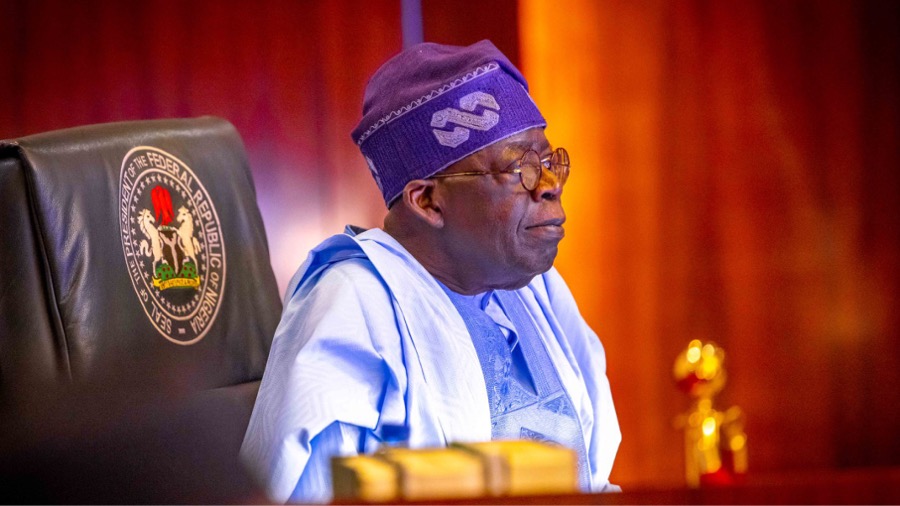The Federal Government of Nigeria has unveiled plans to restart oil production in Ogoni, a significant step aimed at reviving the oil sector in the Niger Delta region. The announcement was made on January 22, 2025, during President Bola Tinubu’s meeting with Ogoni leaders in Abuja. This move marks a turning point in addressing long-standing tensions over resource management, environmental degradation, and community relations in the oil-rich area.
Key Highlights of the Announcement
- Commitment to Economic Development
- The Federal Government emphasized that restarting oil production in Ogoni is a priority to boost Nigeria’s economic output.
- The initiative aims to integrate local communities into the broader economic framework, providing jobs and supporting development projects in Ogoni.
- Environmental Cleanup
- Acknowledging the decades of environmental damage caused by oil spills, the government plans to integrate the cleanup efforts under the Hydrocarbon Pollution Remediation Project (HYPREP) with the resumption of production.
- Stakeholder Engagement
- Ogoni leaders have been invited to participate in the planning and execution stages to ensure inclusivity.
- The government is working to resolve past grievances with the community, including compensation for environmental damages and revenue-sharing agreements.
- Regulatory Oversight
- The project will involve strict adherence to environmental and social governance (ESG) standards.
- Oversight agencies such as the Nigerian Upstream Petroleum Regulatory Commission (NUPRC) will play a critical role.
Implications for Nigeria’s Oil Industry
1. Boost to Oil Production Capacity
Nigeria’s crude oil production has faced significant setbacks due to pipeline vandalism, theft, and declining investments. As of late 2024, production hovered around 1.2 million barrels per day, well below the OPEC production cap of 1.8 million barrels per day. Restarting oil operations in Ogoni could:
- Increase production by 200,000 barrels per day, according to industry estimates.
- Improve Nigeria’s compliance with OPEC quotas, enhancing its standing in the global oil market.
2. Environmental and Social Reforms
The Ogoni crisis has long been a focal point of criticism against Nigeria’s oil industry, particularly Shell’s operations. With renewed efforts in Ogoni:
- The oil sector will gain credibility if successful cleanup and equitable resource-sharing agreements are implemented.
- It could set a precedent for resolving other conflicts in the Niger Delta.
3. Economic Diversification within the Oil Sector
Restarting production could spur investments in local refining capacities. This aligns with President Tinubu’s push for refining crude domestically, reducing reliance on fuel imports.
4. Enhanced Investor Confidence
Global oil majors and local investors have been hesitant to invest due to insecurity and unresolved conflicts. A successful restart in Ogoni, with adequate safeguards, could:
- Attract international players seeking ESG-compliant projects.
- Bolster confidence in Nigeria’s oil-rich but underutilized regions.
5. Revenue and Fiscal Implications
Oil remains the backbone of Nigeria’s economy, contributing nearly 90% of export earnings. Increasing output from Ogoni will:
- Boost federal revenues and foreign reserves.
- Strengthen the naira, particularly in light of ongoing exchange rate reforms.
Challenges and Risks
1. Security Concerns
The Niger Delta remains prone to violence and pipeline sabotage. Effective security measures, including local community involvement, will be crucial.
2. Environmental Accountability
Past oil spills and poor remediation efforts in Ogoni have left the region environmentally degraded. Without strict enforcement of ESG standards, the project risks perpetuating environmental injustice.
3. Resistance from Activist Groups
Groups like the Movement for the Survival of the Ogoni People (MOSOP) have expressed concerns over restarting oil production without resolving legacy issues such as community compensation and environmental restoration.
4. Economic Sustainability
While increased production is beneficial in the short term, overreliance on crude oil revenue exposes Nigeria to global price volatility.
Steps Toward Sustainable Implementation
To ensure the success of the project and mitigate risks, the Federal Government could consider the following:
- Community Participation
- Establish a joint task force comprising government officials, oil companies, and Ogoni representatives to oversee the project.
- Environmental Standards
- Integrate HYPREP’s efforts with international environmental protocols, such as the United Nations Environment Programme (UNEP) guidelines.
- Revenue-Sharing Mechanisms
- Implement transparent systems to ensure fair distribution of oil revenues to Ogoni communities.
- Infrastructure Development
- Commit to building schools, healthcare facilities, and roads in Ogoni as part of the development package.
- Monitoring and Evaluation
- Appoint independent bodies to monitor progress and ensure accountability.
Conclusion
The decision to restart oil production in Ogoni signals Nigeria’s determination to address longstanding conflicts and maximize its oil industry’s potential. If handled correctly, the project could serve as a blueprint for sustainable resource management across the Niger Delta. However, its success depends on addressing the socio-economic, environmental, and security challenges that have plagued the region for decades.
Investors and stakeholders are advised to watch the development closely, as it could redefine Nigeria’s position in the global oil market and shape its economic trajectory.
